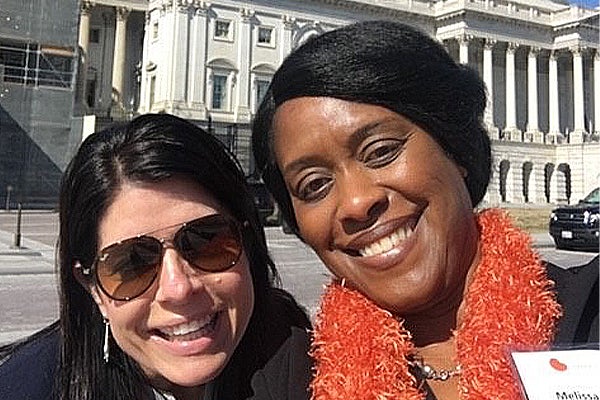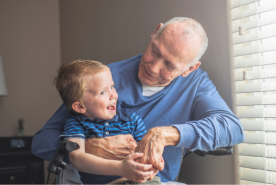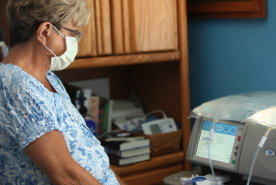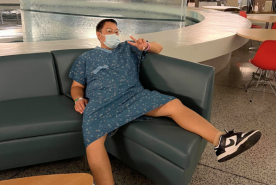May 19, 2020
By Melissa Bensouda, Kidney Patient and NKF Kidney Advocacy Committee Member
No place like home
My appreciation for the phrase “There’s no place like home” has reached an entirely new level over the last six weeks of quarantine. Like many in the U.S., my initial thoughts of the COVID-19 pandemic in the early stages were centered around typical survival needs of food and water. However, as the days passed and the heat map of reported cases and deaths expanded across America, I was quickly reminded of the additional medical precautions that define “survival” for my family.
I originally chose nocturnal home hemodialysis because it allowed me to continue working full time and follow a more liberal diet. Don’t get me wrong, the same reasons apply 16 years later but the benefits of home dialysis right now are clearer than ever. It also gives me the comfort of not worrying about the risk of contracting the virus by dialyzing three times per week in-center, where human contact is not only inevitable but necessary.
Staying connected
I still have monthly appointments with my nephrologist, social worker, nurse and dietician to review labs and treatments for the month, but all of this is now done through telehealth video calls to keep the staff and me safe. These accommodations, in addition to working from home, help allow me to preserve the limited energy I have so I can focus on staying healthy, online schooling for my kids, dialysis and advocacy.
Empowering patients
New and current patients will need close and practical guidance on what success can look like. Rather than it being seen as another overwhelming task that further complicates their routine and depletes their energy, they’ll need to understand the benefits that can be achieved.
Patient engagement will be key to shifting the patient mindset from one of just receiving a treatment to that of empowerment to drive their own health outcomes. I firmly believe this will be such a refreshing shift for patients, like it has been for me.
Looking forward
Last July, the President signed an Executive Order to launch the Advancing American Kidney Health initiative. One of the goals is to reduce the number of patients dialyzing in-centers through promotion of home dialysis and increased transplantation. The medical impact of COVID-19 on dialysis patients and its rapid spread across the U.S. provide even further backing to support this need for greater utilization of home dialysis. The question is now about execution.
This is where I particularly appreciate the leadership that NKF has been providing to make home dialysis more accessible to other patients who want to transition to it. They have been at the forefront by advising CMS and Congress on policies that will help more patients access home dialysis, especially during the COVID-19 crisis.
At the end of the day, before settling down on dialysis at home, I sit on my back porch and reflect on how grateful I am to have been empowered to care for myself and how I can do my part to encourage the same game-changing experiences I’ve had on home dialysis.
Melissa Bensouda was born and raised in Kansas City, MO and recently relocated to Austin, TX. She began dialysis in 2002 and received a transplant in 2012 that lasted four years. Melissa has since resumed home dialysis while actively pursuing a transplant. She works full time in the financial services industry and in her spare time enjoys advocating for kidney patients and traveling with her children and granddaughter.









